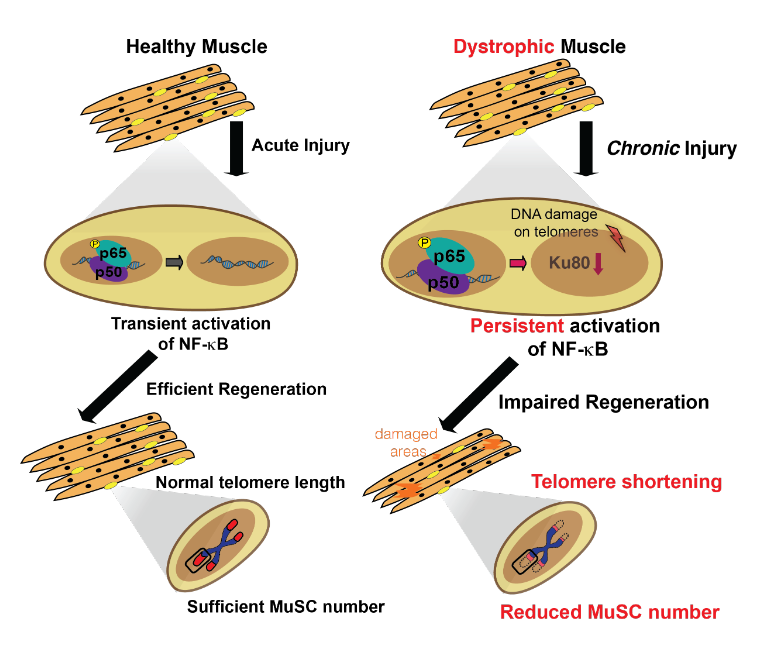An overactive genetic pathway in muscle stem cells was found to shorten the ends of chromosomes, called telomeres, resulting in DNA damage that impedes the normal healing response, according to a new study by researchers in the Perelman School of Medicine at the University of Pennsylvania. The researchers believe this finding unveils the body’s origin point for the chronic muscle injuries associated with diseases like Duchenne muscular dystrophy. This work was published today in Cell Reports.
The specific pathway the researchers studied, NF-kB, is tied both to DNA transcription and inflammation response, among other things. It is the first genetic pathway found to directly affect telomere shortening. Shortened telomeres were previously identified as a key feature of patients with Duchenne muscular dystrophy, a severe muscle disease characterized by extensive muscle injury and repair.
Read more about this work from the Mourkioti lab in Penn Medicine News.

